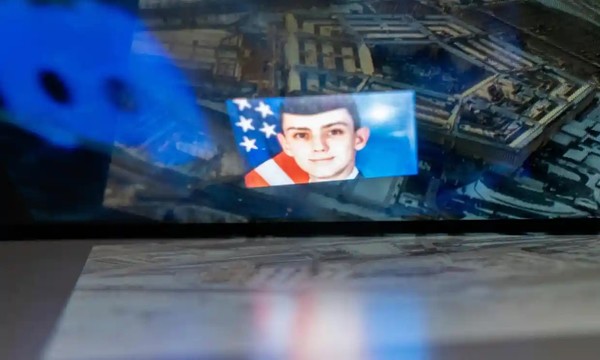
Shortly after the second-biggest dispersal of highly classified intelligence documents since Edward Snowden, the alleged leaker of US operations was arrested and charged in the federal court. The leak, which includes sensitive information about the Russia-Ukraine war and the monitoring of the communication between the allies of US and Russia, has put national security at a high risk and sowed diplomatic confusion.
The Pentagon initially discovered the documents posted to social media platforms in early April, and suspects that they were initially shared on Discord, a decentralized anonymous platform primarily developed for gaming. Jack Teiseira, a former Massachusetts Air National Guard who is also an administrator of a Discord server named “Thug Shaker Central” — where approximately 20 young military gear enthusiasts share antisemitic and racist contents — allegedly shared the classified documents on this server. Teiseira was granted top secret clearance by the government and was entrusted with the highly sensitive information by officials in the Pentagon. He first shared typed versions of the documents, then advanced into posting actual photos as he got frustrated by the lack of reaction from members of the server who didn’t imagine he would dare to post classified military data simply for attention. In early March, the national defense information from “Thug Shaker Central” spread to other Discord servers. On April 5, in an attempt to win a debate about the Russia-Ukraine conflict, a user posted a map from the documents on a thread on the 4chan imageboard website.
On the same day, some documents appeared on a pro-Russia channel on Telegram, which had been doctored before being shared on Twitter. The files contained sensitive information about the Russia-Ukraine war such as the casualty counts of the two countries which both have tried to keep secret. They also included detailed maps that showed the movement of the troops and the state of Ukrainian and Russian weaponry. One classified document, furthermore, showed the weaknesses of the Ukrainian military such as the shortage of air defense missiles. The disclosure revealed the degree of insight that the US has into Russia’s intelligence and its extensive understanding of Russia’s plans in Ukraine, which allowed the US to pass on crucial information on possible strikes to specific targets to their allies. The exposure of the sources of information and methods of collecting them may potentially have let Russia be aware of how US intelligence agencies work and compromised the ability of the US to surveil Russia.
Furthermore, the documents revealed information reaching beyond the details of the war, also disclosing how closely US intelligence agencies monitor its important allies, including Israel, Egypt, and South Korea. The report included information that the President of Egypt ordered to prepare to ship rockets to Russia and allegations that South Korean leaders were hesitating to provide weapons to Ukraine.
These leaks are causing a diplomatic stir: government officials of US and its allies are either denying the allegation or not commenting on them at all. The exposure of such information resulted in rather awkward relationships between the US and its allies. For example, the documents reveal South Korean concern that artillery shells requested by Washington might end up in Kyiv, which is somewhat against South Korea’s abiding stance of not providing weapons to countries in war. US senior military leaders are contacting allies to address the fallout, reassuring them of US commitment in national intelligence, security and fidelity.
Despite this, the response of the allies was quite different compared to that of the leak by Edward Snowden. When Snowden leaked highly classified information from the National Security Agency in 2013, the allies, including Germany, France, and Brazil, showed strong opposition to the US. The head of the CIA was expelled from Germany; thousands of citizens protested in the capital and then-Chancellor Angela Merkel protested directly to US President Barack Obama. In contrast, despite the leak of confidential documents being generally unfavorable for the allies, these countries simply asserted that the contents of their own intelligence mentioned in the document were "false”.
The leak of the intelligence papers gives rise to issues such as hesitation of US allies without established relationships to share intelligence with US, potential exposure of individuals on the ground who have been sharing critical information with US and their partners, and finally, the disclosure of some technology that US is using to gather information.

